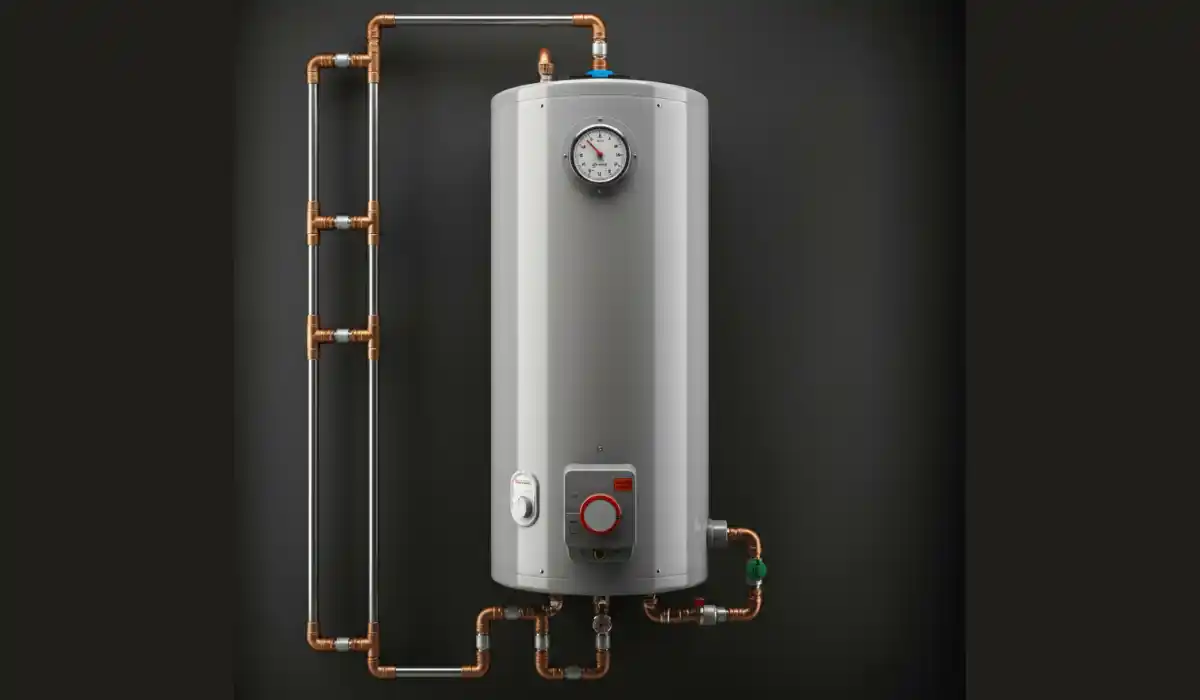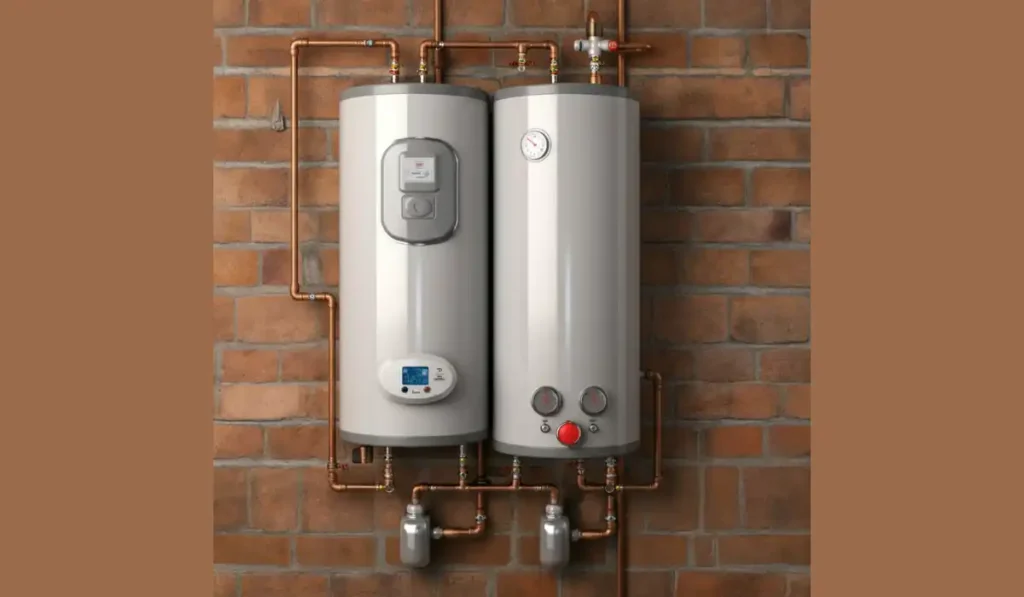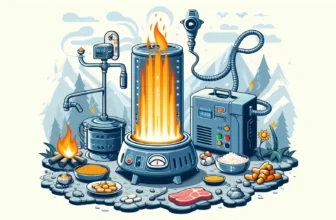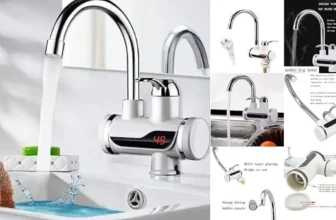Everything You Need to Know About Gas Water Heaters

When it comes to keeping your home warm and ensuring a steady supply of hot water, gas water heaters are the unsung heroes of household comfort. They play a crucial role in serving your daily needs, from warm morning showers to ensuring your dishwashers and washing machines perform at their best. But how much do you really know about them?
This guide dives deep into gas water heaters—how they work, their numerous benefits, and smart tips to boost their efficiency. Whether you’re a homeowner, a housewife, or someone looking to save energy, you’ll find practical insights to help make the most of your gas water heater.
What Are Gas Water Heaters and How Do They Work?
A gas water heater is a heating system powered by natural gas or propane to meet your home’s hot water demands. It’s a common fixture in households, particularly for those in colder climates. Here’s how it works in a nutshell:
- Key Components:
- Burner at the bottom provides the heat
- Storage Tank to store hot water for use
- Flue Pipe ensures any exhaust gases are safely vented from your home
- Cold Water Pipe brings in fresh water for heating
- Thermostat regulates water temperatures
When you turn on a hot water faucet, cold water travels through the system. The burner ignites and heats the tank’s water, which is quickly supplied to you. It’s an efficient, on-demand way to get hot water whenever you need it.
Benefits of Gas Water Heaters

If you’re deciding between a gas water heater and an electric one, you might be leaning towards gas—and for good reasons too. Here’s why they’re worth considering:
- Cost-Effective Operation
While gas systems might have higher upfront costs, they generally cost less to run due to lower natural gas prices compared to electricity. Over time, you’ll save money on your energy bills.
- Energy Efficiency
Gas water heaters heat water faster than their electric counterparts, which translates to less energy usage during high-demand periods.
- Environmental Friendliness
Natural gas burns cleaner than electricity generated from coal-powered plants, meaning gas water heaters tend to have a lower carbon footprint.
How to Choose the Right Gas Water Heater
Selecting the best gas water heater for your home requires some thoughtful consideration. Here’s what to keep in mind:
- Size and Capacity
Look for a tank size that fits your household needs. A family of four might need a 40-50 gallon water heater, but if you live alone, a smaller unit will suffice.
- Energy Efficiency Ratings
Check for models with a high Energy Factor (EF) rating or ones marked with an ENERGY STAR® label. This ensures better performance and lower utility bills.
- Venting System
Choose the right venting method—either direct vent (best for homes without existing chimneys) or atmospheric venting.
- Recovery Rate
This indicates how quickly the heater can refill hot water after heavy usage. Higher recovery rates are ideal for larger households.
- Installation Requirements
Ensure you have enough room for installation. Some newer models may require added space for ventilation or insulation.
Installation and Maintenance Tips
How to Install Your Gas Water Heater (Safely)
While installation is best left to the pros, it’s important to know the basics. Here’s what’s involved:
- Prepare the Space – Ensure there’s proper ventilation to avoid carbon monoxide buildup.
- Shut Off Utilities – Turn off both the gas supply and the cold water intake before removing the old unit.
- Connect the New Heater – Hook up the cold and hot water pipes along with the gas line, secured tightly with pipe sealant.
- Test for Leaks – Light the pilot and check the burner’s flame along with all connections.
- Additional Safety Measures – Install a carbon monoxide detector in the vicinity to ensure safety.
Maintenance to Extend Lifespan
- Flush the Tank Yearly
This removes sediment buildup that might reduce efficiency or damage the heater over time.
- Check the Anode Rod
Inspect it every few years to prevent rust or corrosion in the tank.
- Inspect for Leaks
Regularly look for leaks around the tank, which may indicate wear or improper connections.
- Adjust the Thermostat
Keep water temperatures at around 120°F to optimize energy use and prevent burns.
Energy-Saving Tips for Gas Water Heaters
Lowering your energy bills without sacrificing comfort is easier than you think. Start with these simple changes:
- Wrap Your Water Heater
Insulate your storage tank with a water heater blanket to minimize heat loss, especially in colder climates.
- Fix the Faucets
Install low-flow fixtures to reduce the amount of water (and energy) needed for showers or sink use.
- Use a Timer
Set a timer to heat water only during peak usage hours.
- Wash Clothes in Cold Water
Most laundry detergents work just as well in cold water, helping lower hot water demand.
- Perform Regular Maintenance
Keeping your system in prime shape ensures maximum efficiency.
Troubleshooting Common Issues
Gas water heaters can sometimes act up, but here’s how you can tackle a few common problems:
Pilot Light Won’t Stay Lit
This might be due to either a faulty thermocouple or a dirty vent pipe. Clean the pipe or check if the thermocouple is correctly positioned near the flame.
Water Temperature Issues
If your water is too hot or cold, the thermostat could be faulty or improperly set. Adjust the setting or replace it if necessary.
Strange Noises
Hearing popping sounds? That’s usually caused by sediment buildup at the bottom of the tank. Drain and flush the tank to resolve this issue.
If problems persist, always consult an expert to avoid further damage or risks.
The Smart Choice for Homeowners
A high-performing gas water heater can transform your daily routine, ensuring reliable hot water on demand while saving energy and costs. By understanding its features, performing regular maintenance, and following energy-saving tips, you can maximize its lifespan and efficiency.
Looking to upgrade your home’s water heating system? Start by considering these insights and make a choice that matches your household needs. For more advice on home essentials, check out our blog for more expert tips!
Read More:-
The Complete Guide to Tankless Water Heaters for Homeowners
Why Usha Water Heaters are a Game-Changer for Every Homeowner
Best Kitchen Water Heater: Top Picks for Your Home
Best Water Heater for Bathroom: Complete Buying Guide
Top Rated Instant Water Heater Reviews & Guide 2024
Bajaj Water Heater: Top-rated models, reviews, and buying guide for your home






